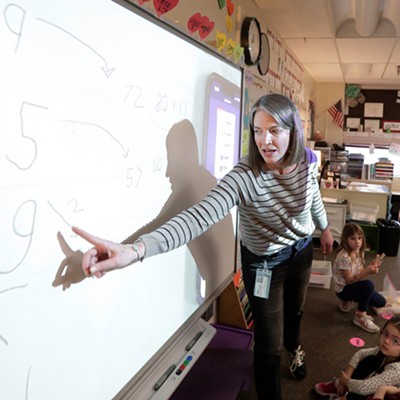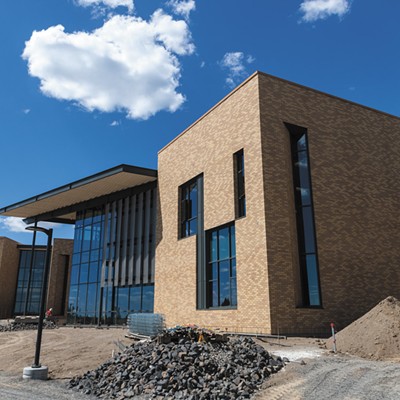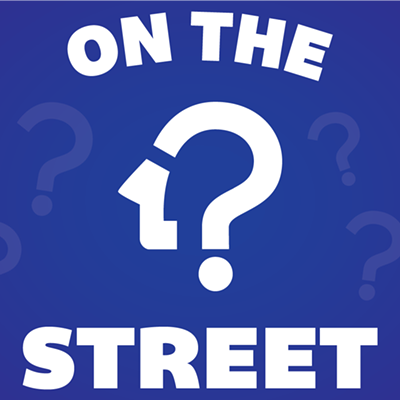Another school year is upon us. Over the next few months, university and college committees will form to begin considering colleagues for spring decisions on retention, promotion and tenure. Nervous junior faculty will teach this semester, awaiting the first round of student evaluations — to be summed up, averaged, sliced, diced and re-evaluated.
Personally, over my 45 years of college teaching, I haven't had much to complain about. When I went up for promotion to full professor at EWU, I ranked first in "Teaching Effectiveness." Over my 14 years at Gonzaga, I did OK. But just the sense that I needed to establish my bona fides underscores my concerns.
Student evaluations emerged from the '60s and '70s as part of the student demand menu of "reforms." Perhaps it was the Berkeley free speech movement; no doubt Vietnam (which politicized a generation) had a lot to do with it. Whatever the reasons, students back then demanded "relevancy," "transparency" and "accountability." Some even demanded more — control over curriculum, and representation at department meetings.
Eventually, under duress, administrators and faculty gave in to many of these demands. One thing for certain: "excellence in teaching" had little or nothing whatsoever to do with the new order; it was all about senior administrators not wanting to deal with sit-ins, and faculty wanting to appear relevant.
Today, some 40 years later, we still can't even agree on the meaning of the term "teaching excellence." Not to worry: We just assert a positive correlation between "excellence in teaching" and high marks on those pervasive student evaluations.
Meanwhile, not much consideration has gone to unintended consequences. For example, what about grade creep? Who would argue that today's grades are not inflated? The Washington Post cites a theory concluding that professors today are "more prone to assigning less work and giving better grades so that, in turn, students will give them better evaluations, which are a crucial part of the faculty assessment process."
As for the students: unless I've missed something, they are no longer at the barricades. Maybe it would be better for us all if they were, even if for only a few minutes a day. But since they aren't, why continue ramming down their throats what they seemingly couldn't care less about? Students today often have to be coaxed to even participate in the evaluation process. Gonzaga went from in-class written evaluations to out-of-class, computer-generated evaluations. The drop-off in participation was dramatic. The fix? The old captive audience tactic: just schedule in-class computer evaluations, thus missing the point entirely.
We are producing little more than a statistical illusion, reflecting in large part opinion based on impressions that always are influenced by circumstances. These results are too often treated as if they are somehow scientific.
When all is said and done, we are confronted by an unavoidable reality: Academia has taken a politically expedient reform and enthusiastically transformed it into a now long-running show of political correctness. Add in computer technology, and now it has been packaged into ever-finer calculations, resulting in distinctions without a difference used to make important decisions about what makes for a good professor.
In his essay titled "Goodbye Mr. Chipstein," Joseph Epstein, longtime editor of The American Scholar, reflects on his own teaching career at Northwestern University: "As to how successful I was as a teacher in general," he writes, "I haven't the faintest idea."
Epstein points out that that he always wanted to "establish a setting of goodwill." He writes about student evaluations: "They were of little help." (He does recall one suggestion that he took to heart: He stopped jiggling his keys.)
"Although," he adds, "I could make good students a little better, I could do nothing to improve the mediocre or uninterested. In fact, I believe I made them a little worse by confusing them with my high-flown talk." Epstein flatly acknowledges that he always taught to the best students in the class: "I knew no other way."
Amen, brother.
Statistics fade to black, and we seek out the Professor Epsteins — professors who view teaching less as a career and more as a calling. These are the teachers who have something to say, and the ones who most benefit their students. Colleagues consider their writing, syllabi, reading lists, examinations and grading techniques. It's an art, not a science easily measured by a computer. Perhaps the best marker is exactly what Epstein's career exemplifies: evidence of a "continuing engagement with the discipline." ♦























